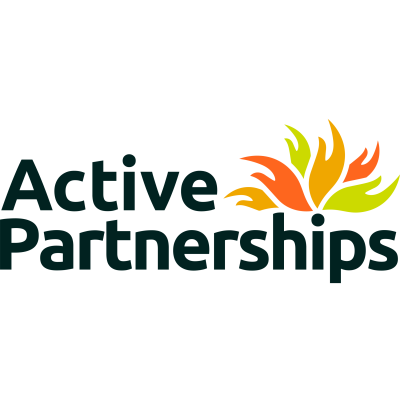Laura Cooper is a mentor at Progress Housing, one of our partners on the More Positive Together project, and is also a therapist. Here she gives us advice and her suggestions around how to maintain a happy and healthy mind when working from home during COVID-19.
It has never been more apparent that the world is ever changing and that we, both as individuals and as a community, must adapt and change with it. Our current situation has raised a lot of mixed and overwhelming emotions, especially when all around us we are bombarded with what we can’t do and what we are missing out on. Without realising we forget that there are positive things happening at the moment and brand new opportunities are now open to us that would never have been available before.
It can be easy, as we fall out of our usual routine, to loose ourselves a little, too loose motivation and begin to think quite negatively. Things that we previously enjoyed can seem like too much effort and the dreaded “oh I will do it tomorrow…” can become our new mantra preventing us from enjoying life and making the most of this opportunity.
As a therapist I am all too aware of how quickly negative thinking can take hold and the detrimental impact it can have on our mental health. Below are a few hints and tips that I use every day to help stay on track maintaining a happy and healthy mind whilst working from home.
Step 1: Perspective
It’s time to ban can’t from our vocabulary
The way we think has a massive impact on our lives, I am sure you have heard the cycle of your thoughts effect your feelings, which effects your behaviour, which in turn effects your thoughts. It can be a vicious cycle and we need to be able to catch and challenge those negative thoughts before they become our new way of thinking, here are some tips on how;
- Firstly focus on what you can do, not what you can’t!
- Get creative! Every can’t is an opportunity for a new can, can’t meet someone face to face, you CAN do a video call, can’t go to the gym time you CAN try that early 2000’s exercise DVD you buried in the cupboard, can’t socialise with friends you CAN do an online interactive pub quiz together.
- Can’s are only limited by your own imagination, if your struggling, borrow some inspiration. Pinterest and Instagram are fantastic for helping generate those new ideas!
- Importantly, remember to keep a balanced perspective, nothing lasts forever, as our life pre virus changed, so will our current situation. There is nothing worse than Ground Hog Day, we have an opportunity to do the things we never previously had time for so take the blank slate and build a new routine filled with all the things you want to do. Oh, and don’t forget to find time for the work bit too!
Step 2: Motivation
It’s all about rewards not excuses!
As the weeks go by it can be hard to maintain motivation to do… well anything. Work productivity can slip, house life can grind to a halt and before you know it you are wrapped in a blanket in a near vegetative state watching re runs of midsummer murder.
Below are some ways to keep the motivation flowing.
Firstly start by setting a few tasks to achieve each day – 3 is a good amount, you don’t want to get overwhelmed with too much stuff to do, on top of all your stuff to do! I aim for 1 practical, 1 creative and 1 developmental each day.
So what do I mean by this…
- For practical it can be as simple as put a wash on, tackle that pile of ironing or fix that door that just never closes right.
- For creative I try to read a chapter of a book I’ve never read before or make something arty, even paint the skirting boards! When making something I recommend trying to make something that you can keep and look back on, so put that picture on the fridge and stand back admire your freshly painted wood work.
- For developmental look at learning new skills or understanding new concepts such as watching that ted talk on cosmology that you haven’t got round to yet or learning how to sew, you know all those things you think “I would love to do that but I don’t have time…” Now you do so do it!
- Remember to keep goals varied and time limited such as an hour for each per day.
Finally and most importantly bask in the success of achieving your daily goals. Take a moment to feel good about accomplishing the things you have to and developing yourself how you want to, personal growth paves the path to fulfilment.
Step 3: Healthy mind
It’s all about trying something new.
When facing new challenges we can often feel unprepared and ill-equipped. Lucky for us there is an overwhelming amount of information and resources out there to help us, all you have to do is give it a go! Just remember before you go and download 20 apps, that you'll only open once, that moderation is key, pick just a few and stick with them for a few weeks so you can fairly judge their effectiveness for you!
A healthy mind take patience and practice, below are a few tools and techniques I use to improve my mental wellbeing.
- Firstly make time! Set aside some time every day for your self-care and if you can try squeeze in more than one a day as soon as you wake up or just before dinner is always a good time.
- Utilise technology. Explore and download apps such as Head Space, Calm, Well Mind and my possible self, these will often have built in structured programs to help you get started.
- If you are lucky enough to live in Lancashire you can join the Big White Wall, an online mental health community that has a wealth of online resources usually following a CBT structure to help you stay mentally well and challenge those negative thoughts and behaviours.
- Stay connected. As social creatures we need interaction to survive, yes that includes us introverts too! Take time out of your day to touch base with a few friends and family.
- Practice Mindfulness. This is all about staying present in the moment and focusing on your immediate direct reality, it can help reduce anxiety and build self-awareness. To do this people will often do things like meditate or colour to help focus their attention to one specific thing. It can be tricky to let go of your thoughts and mindfulness takes a lot of practice I recommend using one of the apps mentioned above to help get you started.
- Exercise in nature*. We all know exercise can improve our mood but exercising outside in nature can be even more beneficial. You can match your exercise with mindfulness where you can work on getting out of your own head and experiencing life in the moment by focusing on your immediate surroundings, the sound of the trees moving in the wind your footsteps on the ground, the light on the water.
- Finally don’t forget your environment. Remember that old saying your grandma used to say, “cleanliness is next to godliness!”, I’m not sure about the religious part but she did make a good point, its scientifically proven that clean, safe environments improve mental wellbeing so pick up that that Mr Muscle and make those windows sparkle! Trust me you will feel calmer and fitter!
I hope that you enjoyed reading this and find some of the hints and tips helpful and if you only take one thing away from it let it be that nothing lasts forever, no matter what happens over the coming weeks and months things will change and you are never alone, there is always someone to talk to and support out there, all you need do is ask. As we explore this uncharted territory together work to see the opportunity in every challenge, feel blessed with the time that you have and remember that only real restrictions we have are the restrictions we put on ourselves.
Take care of yourself, and of each other.
Laura
*Please follow the latest Government advice on exercise outside of the home. Currently one form of exercise a day, for example a run, walk, or cycle - alone or with members of your household.




